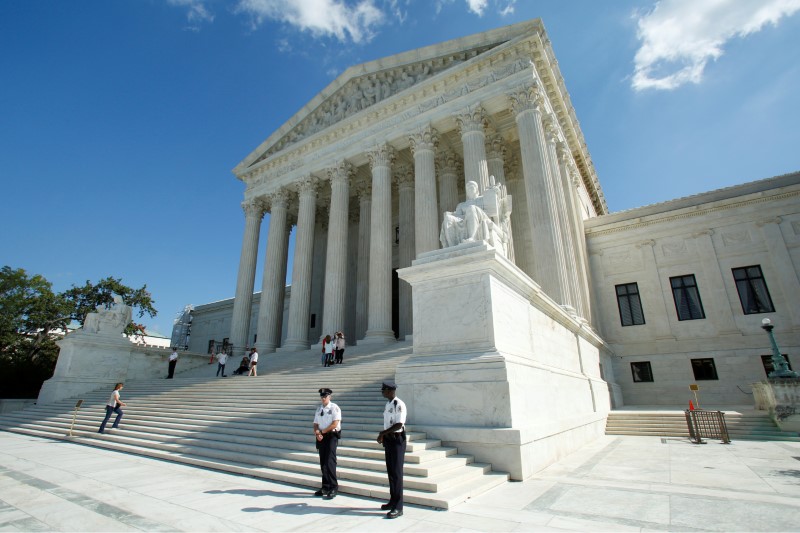WASHINGTON (Reuters) - U.S. President Donald Trump would favor Senate Republicans changing voting rules to allow a simple majority of the Senate to approve his nominee for the U.S. Supreme Court if Democrats block his choice, he said in an interview airing on Thursday.
“I would. We have obstructionists,” Trump told Fox News, referring to possible use of the so-called nuclear option that would overturn Senate rules requiring 60 votes to overcome a procedural hurdle, or filibuster, for Supreme Court nominees.
There are currently 52 Republican senators in the 100-seat chamber.
Trump plans next week to announce his choice to fill the vacancy caused by the death of conservative Justice Antonin Scalia in February 2016. His nominee could restore the decades-long conservative majority on the court.
Democrats are seething over the Republican-led Senate's refusal last year to consider Democratic President Barack Obama's nomination of appeals court Judge Merrick Garland for the lifetime post, an action with little precedent in U.S. history.
Trump told Fox News anchor Sean Hannity that he had made his choice. “I have made my decision pretty much in my mind, yes. That's subject to change at the last moment."
Among the front-runners are three conservative jurists: Neil Gorsuch, a judge on the Denver-based 10th U.S. Circuit Court of Appeals; Thomas Hardiman, who serves on the Philadelphia-based 3rd U.S. Circuit Court of Appeals; and William Pryor, on the Atlanta-based 11th U.S. Circuit Court of Appeals.
On Tuesday, Senate Democratic leader Chuck Schumer said he told Trump that Democrats would fight any nominee they consider to be outside the mainstream.
Assuming all 52 Senate Republicans back Trump's nominee, Senate Majority Leader Mitch McConnell would either need to lure eight Democrats to his side or change the rules and ban the filibuster for Supreme Court nominations.
Despite the nuclear option threat, Nan Aron, president of the liberal Alliance for Justice, which tracks judicial nominations, said in an email to Reuters that a Democratic filibuster "would still be far better than what Republicans did to Merrick Garland."
More than three years ago, Democrats used their then-majority in the Senate to ban filibusters against presidential nominees other than for the Supreme Court. The move came after Republicans blocked several key Obama nominees.

Vice President Mike Pence told Republican lawmakers on Thursday that Trump would nominate a "strict constructionist" to the court, referring to the literal interpretation of the U.S. Constitution's text without regard to changes in American society.